Why do need adequate amounts of magnesium
- and why are deficiencies so common?
 Magnesium plays a vital role in the body’s calcium distribution and is involved in over 300 enzyme processes that are relevant for our bones, circulatory system, muscles, nervous system, blood pressure, blood sugar levels, immune system, and utilization of vitamin D. For that reason, too little magnesium increases your risk of osteoporosis, diabetes, cardiovascular disease, migraine headaches, infections, PMS, plus anxiety and other neurological disorders. This is highlighted in a review article published by Medical News Today. It is therefore important to be aware of all the overlooked factors that may cause a magnesium deficiency.
Magnesium plays a vital role in the body’s calcium distribution and is involved in over 300 enzyme processes that are relevant for our bones, circulatory system, muscles, nervous system, blood pressure, blood sugar levels, immune system, and utilization of vitamin D. For that reason, too little magnesium increases your risk of osteoporosis, diabetes, cardiovascular disease, migraine headaches, infections, PMS, plus anxiety and other neurological disorders. This is highlighted in a review article published by Medical News Today. It is therefore important to be aware of all the overlooked factors that may cause a magnesium deficiency.
- Created on .








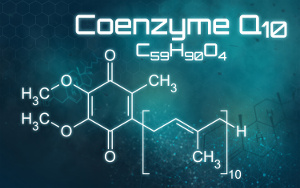 According to WHO, sepsis is the third-most common cause of death, following cardiovascular disease and death. Sepsis is a result of the immune defense overreacting to an infection in the bloodstream. According to a new Slovakian study published in Bratislava Medical Journal, if you start supplementing with Q10 early in the treatment phase, it may reduce the symptoms and improve the chances of survival. Read more about another nutrient that contributes to the prevention of sepsis.
According to WHO, sepsis is the third-most common cause of death, following cardiovascular disease and death. Sepsis is a result of the immune defense overreacting to an infection in the bloodstream. According to a new Slovakian study published in Bratislava Medical Journal, if you start supplementing with Q10 early in the treatment phase, it may reduce the symptoms and improve the chances of survival. Read more about another nutrient that contributes to the prevention of sepsis.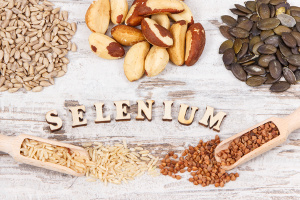 The trace element selenium has a vital yet overlooked role in ensuring a well-functioning immune system, and the widespread problems with selenium deficiency increase the risk of dying of COVID-19, according to a large German study that is published in the science journal Nutrients. The scientists therefore conclude that determining the patients’ blood selenium levels may provide vital diagnostic information. Also, the researchers conclude that it may be necessary to include selenium supplements in the treatment of COVID-19, especially with older people, diabetics, and those with chronic diseases that are at particular risk of life-threatening complications. The agricultural soil in Europe and other parts of the world contains relatively little selenium, which is why it is imperative to focus more on getting adequate amounts of this essential nutrient for the sake of preventing COVID-19 and other viral infections. It appears that the official recommendations – the so-called reference intake levels or RI – are not sufficient to meet the body’s actual requirements.
The trace element selenium has a vital yet overlooked role in ensuring a well-functioning immune system, and the widespread problems with selenium deficiency increase the risk of dying of COVID-19, according to a large German study that is published in the science journal Nutrients. The scientists therefore conclude that determining the patients’ blood selenium levels may provide vital diagnostic information. Also, the researchers conclude that it may be necessary to include selenium supplements in the treatment of COVID-19, especially with older people, diabetics, and those with chronic diseases that are at particular risk of life-threatening complications. The agricultural soil in Europe and other parts of the world contains relatively little selenium, which is why it is imperative to focus more on getting adequate amounts of this essential nutrient for the sake of preventing COVID-19 and other viral infections. It appears that the official recommendations – the so-called reference intake levels or RI – are not sufficient to meet the body’s actual requirements.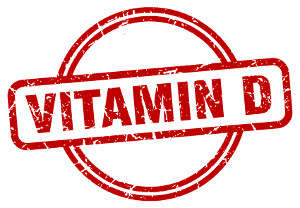 Hashimoto’s disease (Hashimoto’s thyroiditis) is an overlooked scourge that leads to hypothyroidism and is particularly widespread among women. Postpartum thyroiditis that also slows down your metabolism follows in the wake of pregnancy. Graves’ disease where the metabolism speeds up (hyperthyroidism) is less common. These three thyroid disorders belong to the group of autoimmune disorders where the immune defense attacks the body’s tissues, and it appears that lack of vitamin D increases the risk, as it controls the immune defense in a number of ways. According to a new review article that is published in Nutrients, taking larger quantities of vitamin D may have a positive impact on these thyroid disorders.
Hashimoto’s disease (Hashimoto’s thyroiditis) is an overlooked scourge that leads to hypothyroidism and is particularly widespread among women. Postpartum thyroiditis that also slows down your metabolism follows in the wake of pregnancy. Graves’ disease where the metabolism speeds up (hyperthyroidism) is less common. These three thyroid disorders belong to the group of autoimmune disorders where the immune defense attacks the body’s tissues, and it appears that lack of vitamin D increases the risk, as it controls the immune defense in a number of ways. According to a new review article that is published in Nutrients, taking larger quantities of vitamin D may have a positive impact on these thyroid disorders.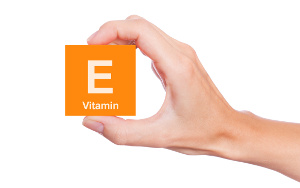 According to an article that is published in StatPearls, vitamin E is a powerful antioxidant that protects against atherosclerosis, cardiovascular disease, and blood clots. Vitamin E is also important for fertility, cell functions, and immune defense. A low-fat diet may result in a vitamin E deficiency. You should also beware that diseases characterized by impaired lipid absorption may increase you need for vitamin E.
According to an article that is published in StatPearls, vitamin E is a powerful antioxidant that protects against atherosclerosis, cardiovascular disease, and blood clots. Vitamin E is also important for fertility, cell functions, and immune defense. A low-fat diet may result in a vitamin E deficiency. You should also beware that diseases characterized by impaired lipid absorption may increase you need for vitamin E.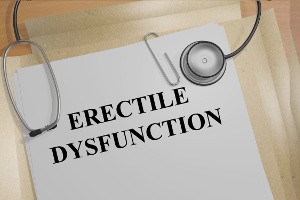 Many men suffer from erectile dysfunction, a problem that often foreshadows cardiovascular disorders. It appears that vitamin D plays a preventive role by way of several mechanisms that can even benefit diabetics, according to a new meta-analysis published in Clinical Nutrition. An earlier study that is published in Clinical Endocrinology shows that vitamin D is involved in the production of male testosterone, which is essential for the ability to obtain and maintain an erection. A man’s sexual performance is therefore highly dependent on his vitamin D levels throughout life.
Many men suffer from erectile dysfunction, a problem that often foreshadows cardiovascular disorders. It appears that vitamin D plays a preventive role by way of several mechanisms that can even benefit diabetics, according to a new meta-analysis published in Clinical Nutrition. An earlier study that is published in Clinical Endocrinology shows that vitamin D is involved in the production of male testosterone, which is essential for the ability to obtain and maintain an erection. A man’s sexual performance is therefore highly dependent on his vitamin D levels throughout life. Premature delivery increases the baby’s risk of being born with developmental disturbances or dying within its first months of life. It is commonly known that omega-3 fatty acids are important for normal pregnancy. According to a new and updated Cochrane review article, overweight people are at increased risk of lacking omega-3 fatty acids, and supplementing with omega-3 may lower their risk of giving birth too soon. Although the new study supports earlier research, there was something that surprised the scientists.
Premature delivery increases the baby’s risk of being born with developmental disturbances or dying within its first months of life. It is commonly known that omega-3 fatty acids are important for normal pregnancy. According to a new and updated Cochrane review article, overweight people are at increased risk of lacking omega-3 fatty acids, and supplementing with omega-3 may lower their risk of giving birth too soon. Although the new study supports earlier research, there was something that surprised the scientists. Folic acid is important for fetal growth and development, and that is why pregnant women have an increased need for the nutrient. It is commonly known that supplementation with folic acid during pregnancy lowers the risk of spina bifida. A new study shows that maternal intake of folic acid in the late part of pregnancy is of vital importance for the baby’s lingual development at the age of two years. This was shown in a study that is published in Epidemiology. Unfortunately, many pregnant women forget to take their folic acid supplements.
Folic acid is important for fetal growth and development, and that is why pregnant women have an increased need for the nutrient. It is commonly known that supplementation with folic acid during pregnancy lowers the risk of spina bifida. A new study shows that maternal intake of folic acid in the late part of pregnancy is of vital importance for the baby’s lingual development at the age of two years. This was shown in a study that is published in Epidemiology. Unfortunately, many pregnant women forget to take their folic acid supplements.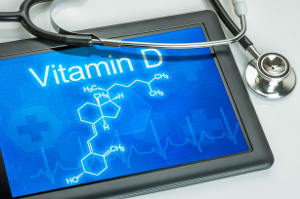 The summer sun is our most important source of vitamin D but people dark-skinned people living at northern latitudes have difficulty when it comes to producing enough of the nutrient. This makes them much more likely to become vitamin D-deficient and that can have serious health consequences, which may be life-threatening in worst case according to several studies.
The summer sun is our most important source of vitamin D but people dark-skinned people living at northern latitudes have difficulty when it comes to producing enough of the nutrient. This makes them much more likely to become vitamin D-deficient and that can have serious health consequences, which may be life-threatening in worst case according to several studies.